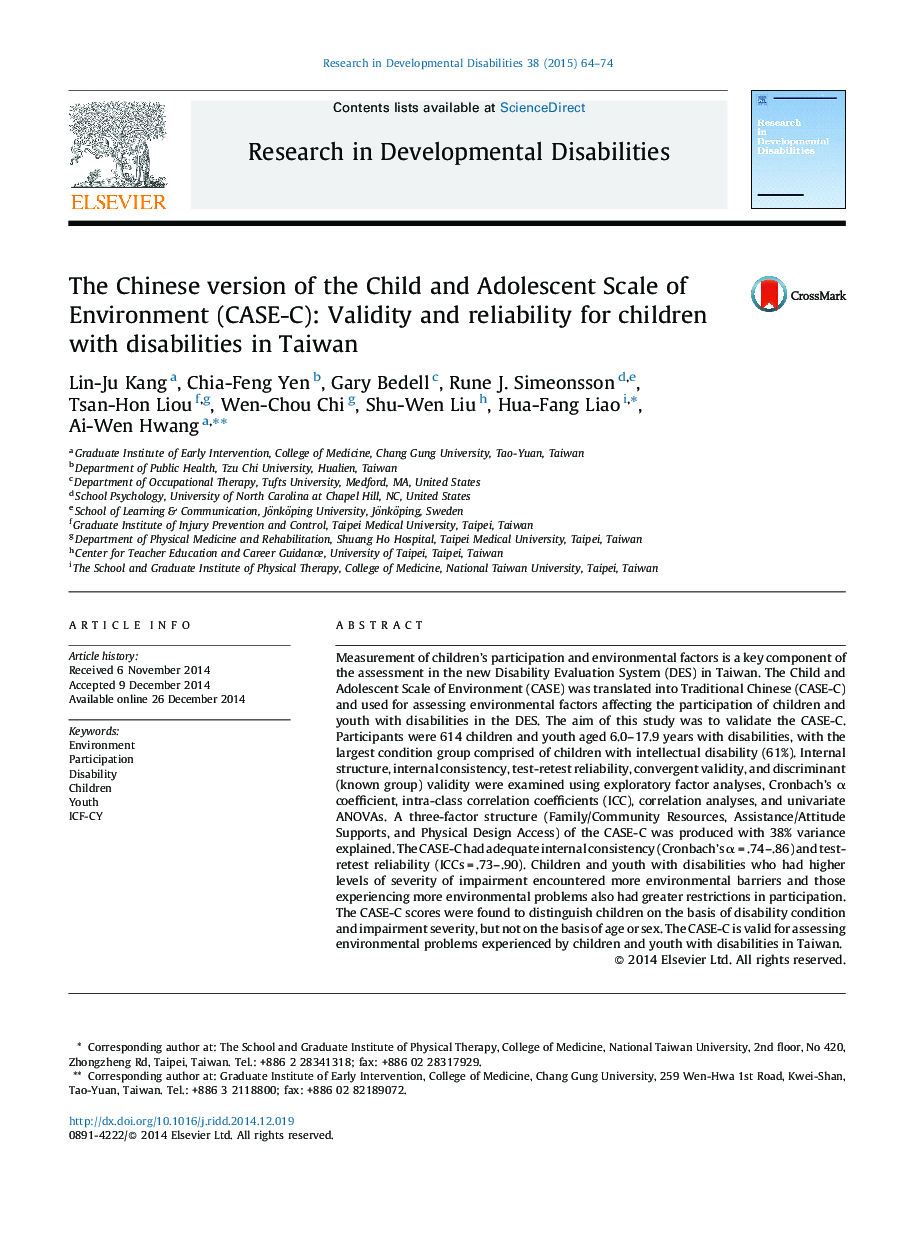| Article ID | Journal | Published Year | Pages | File Type |
|---|---|---|---|---|
| 371211 | Research in Developmental Disabilities | 2015 | 11 Pages |
•To report validity and reliability of the Chinese version of Child and Adolescent Scale of Environment (CASE-C).•The CASE-C showed a three-factor structure and explained 38% of the total variance.•The CASE-C had good internal consistency and test-retest reliability.•Evidence of convergent validity and discriminant validity was provided.•The CASE-C is valid and reliable for assessing environmental problems of Taiwanese children with disabilities.
Measurement of children's participation and environmental factors is a key component of the assessment in the new Disability Evaluation System (DES) in Taiwan. The Child and Adolescent Scale of Environment (CASE) was translated into Traditional Chinese (CASE-C) and used for assessing environmental factors affecting the participation of children and youth with disabilities in the DES. The aim of this study was to validate the CASE-C. Participants were 614 children and youth aged 6.0–17.9 years with disabilities, with the largest condition group comprised of children with intellectual disability (61%). Internal structure, internal consistency, test-retest reliability, convergent validity, and discriminant (known group) validity were examined using exploratory factor analyses, Cronbach's α coefficient, intra-class correlation coefficients (ICC), correlation analyses, and univariate ANOVAs. A three-factor structure (Family/Community Resources, Assistance/Attitude Supports, and Physical Design Access) of the CASE-C was produced with 38% variance explained. The CASE-C had adequate internal consistency (Cronbach's α = .74–.86) and test-retest reliability (ICCs = .73–.90). Children and youth with disabilities who had higher levels of severity of impairment encountered more environmental barriers and those experiencing more environmental problems also had greater restrictions in participation. The CASE-C scores were found to distinguish children on the basis of disability condition and impairment severity, but not on the basis of age or sex. The CASE-C is valid for assessing environmental problems experienced by children and youth with disabilities in Taiwan.
